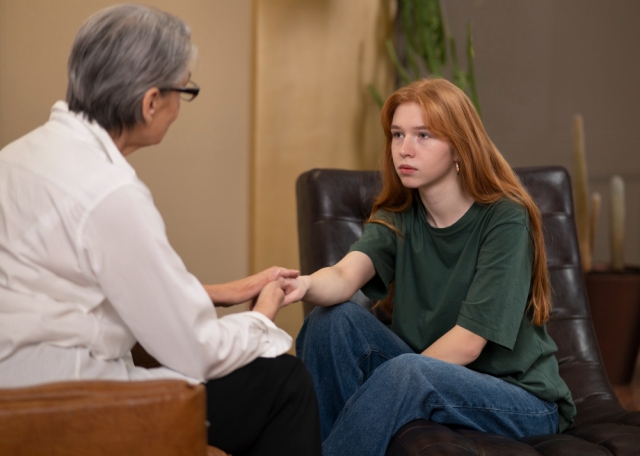Teenagers are often seen as resilient. But when a traumatic event occurs, such as a natural disaster, car accident, sexual abuse, or witnessing violence, even the strongest teen can be deeply affected. Trauma doesn't always leave visible signs. Many teens keep their feelings hidden or are unsure of how to express what they're going through. That's why it's essential to recognize the signs of trauma in teens early.
Understanding Trauma in Adolescents
Trauma is any experience that overwhelms a person's ability to cope. For teens, this could include school shootings, losing a loved one, or living with ongoing stress at home. These events can affect how a teen thinks, feels, and behaves.
Trauma can also impact brain development, make it harder to trust others, and create distance in relationships. It may change how they connect with family members, peers, or other adults.
Not every teen who experiences trauma will develop long-term problems. However, some individuals may exhibit emotional or behavioral changes that should not be overlooked. Without the right help, trauma may lead to substance abuse, self-harm, panic attacks, or even thoughts of suicide. That's why a safe and supportive environment matters.
Common Signs of Trauma in Teens
Trauma can show up in many ways, and symptoms often vary between younger children, older children, and young adults. Below are some common signs that may indicate your teen is struggling after a traumatic experience:
- Sudden Changes in Behavior: Withdrawal from friends, loss of interest in school or hobbies, or bursts of strong emotions like anger or fear.
- Avoidance Behaviors: Refusing to talk about the event or actively avoiding reminders of it.
- Physical Symptoms: PTSD symptoms like sleep problems, fatigue, headaches, or being easily startled.
- Emotional Numbness: A teen may appear detached or disconnected from others and their feelings.
- Regression: In some cases, trauma can cause behaviors seen in younger children, such as thumb sucking or bed wetting.
- Difficulty Concentrating: Struggling in school, having memory lapses, or an inability to problem solve.
- Intrusive Thoughts or Flashbacks: Repeated distressing memories or nightmares related to the traumatic event.
These signs don't always mean your teen has post-traumatic stress disorder (PTSD). However, they can point to deeper emotional pain that needs attention.
Creating a Safe and Supportive Environment
If your teen shows signs of trauma, start by offering emotional safety. Let them talk at their own pace. Listen without judgment. Offer emotional support by validating their feelings and showing consistent care.
You can also help by maintaining consistent routines. Encourage healthy habits, such as getting enough sleep, exercising regularly, and journaling, to support emotional well-being and reduce daily stress. Make time for calming activities. These steps create a supportive environment where healing can begin.
Let your teen know it's okay to ask for help. Remind them that they are not alone and that you are there to support them.
When to Seek Professional Help
Some teens recover with family support. Others need more help to move forward. If symptoms continue or worsen, it's time to seek guidance from a mental health professional.
Trauma therapists use proven techniques to help teens heal. One of these is Eye Movement Desensitization and Reprocessing (EMDR). It helps reduce distress tied to traumatic memories.
A trusted teen treatment center can also offer full support. These centers provide therapy, education, and tools for managing stress. They give teens space to rebuild their sense of safety and control.
Where to Get Help
If your teen is in a crisis, reach out for help immediately. You can call the National Suicide Prevention Lifeline or text the Crisis Text Line at 741741. These services are free and confidential. They can also guide you toward local resources for long-term support.
Moving Forward
Healing from trauma takes time. Your support plays a significant role in helping your teen recover. Be patient. Be consistent. Keep checking in. Let your teen know you believe in them.
By learning to recognize the signs of trauma and creating a safe space to heal, you are helping your teen take the first steps in the recovery process. With proper care and support, they can regain their strength, build better coping skills, and move forward with hope.






